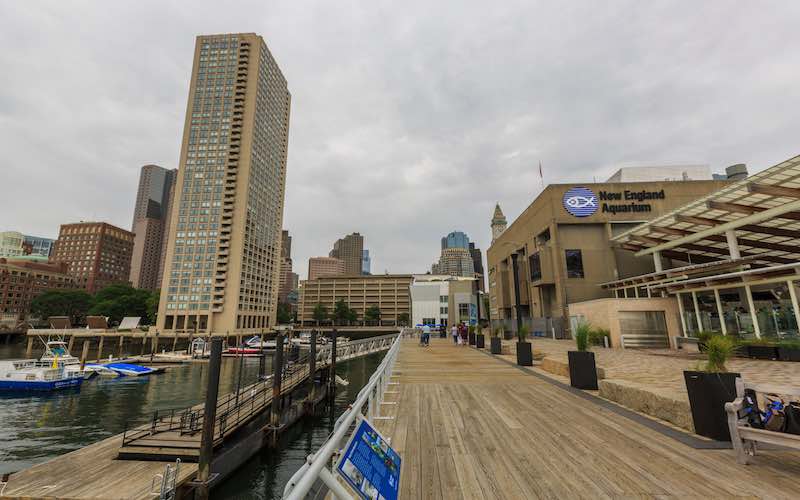
The view from the Boston Harborwalk near the New England Aquarium in Boston, Massachusetts. Photo: Jerry Monkman
July 24, 2019 (BOSTON, MA) – Residents of Boston see rampant development as a much greater threat to the city’s waterfront than climate change, according to a new survey released today by Conservation Law Foundation (CLF). The survey also revealed issues related to affordability, race, and transportation in the city’s booming waterfront areas.
Forty percent of city residents surveyed cited overdevelopment as the greatest threat to Boston’s waterfront areas, while only 24 percent claimed climate change posed the biggest risk.
The survey also found that when it comes to feeling welcome in waterfront neighborhoods, black residents are four times more likely to feel unwelcome than white residents.
“The waterfront and Boston Harbor belong to all of us, not just the white and wealthy,” said Brad Campbell, President of CLF. “Too many developers have been allowed to wall off access to the water for the benefit of a few, and the rest of the city is finally taking note. We all paid for the cleanup of Boston Harbor and we all deserve equal access to it.”
In the survey, residents were asked about their attitudes regarding all of Boston’s waterfront areas, including Downtown, South Boston, Dorchester, and East Boston. But it was clear from many of the open-ended responses that they associate the waterfront with the Seaport.
The survey found that, in this minority-majority city, 65 percent of white residents have visited waterfront areas three or more times over the last year, compared to 44 percent of non-whites. Additionally, only six percent of white people feel the waterfront is unwelcoming compared to 24 percent of black residents and 20 percent of Latinx respondents who feel unwelcome in waterfront areas.
For many, the waterfront is both overpriced and hard to get to. Overall, 47 percent of the 953 respondents said that there was not enough affordable parking near the waterfront, while 37 percent said dining and activities were too expensive. Travel to waterfront areas was also named as a problem, with 33 percent surveyed saying public transportation takes too long.
This survey provides some clear direction on changes that officials should carefully consider, such as policing unlawful barriers to access; increasing the number of free and low-cost activities in these neighborhoods, and significantly improving public transportation to waterfront areas. City planners and regulators need to stop shortchanging public access when reviewing and approving projects.
The survey was commissioned by CLF and administered by MassINC Polling Group. You can read a PDF of the topline results of the survey and a PDF of the full result. You also can learn more about CLF’s work on Boston’s Waterfront.
CLF experts are available for comment.
###
